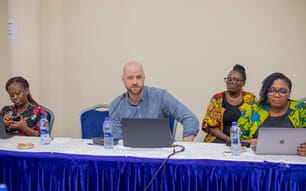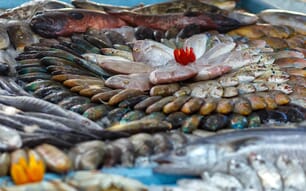The Agreement clearly defines federal and provincial responsibilities for the management and regulation of the aquaculture sector in B.C. after 18 December 2010, when the federal government will assume the primary responsibility for the regulation and management of aquaculture in the province.
"This new Agreement will provide certainty on how our governments will collaborate on the common goal of having a strong aquaculture industry in British Columbia that is economically, socially and ecologically sustainable," said Minister Shea.
"We are committed to working together toward the effective, efficient and transparent management of the aquaculture sector in British Columbia."
Mary Ellen Walling, Executive Director of the BC Salmon Farmers Association said: "We welcome the new regulations and are glad to see the two levels of government working together to provide a stable operational environment for the BC aquaculture industry."
While the BCSFA has not yet seen the MOU and its contents, the association said it has provided feedback into the Pacific Aquaculture Regulations during the public consultation period and are happy to see the final regulations posted in Canada Gazette this week.
The BC industry said it feels the new regulations will help to better streamline management of the industry allowing regulators and business to look at other operational opportunities.
"Our industry has developed into the successful and sustainable business that it is in part due to the hard work of our provincial regulators - we look forward to continuing that forward motion with our new federal colleagues," said Walling.
The Agreement replaces the Canada/British Columbia Memorandum of Understanding on Aquaculture Development made on 6 September 1988. Following the February 2009 British Columbia Supreme Court decision that led to the change in roles and responsibilities for the management of aquaculture in the province, it became clear that a new agreement was needed for the ongoing management of the sector. The Agreement applies to all forms of aquaculture including stock enhancement and government research programs as well as non-commercial aquaculture-related activities.
"Our economy is stronger when governments work together to support development of B.C.'s agricultural industries," said Minister Stewart.
"This new agreement will ensure aquaculture continues to provide hundreds of millions of dollars in wages, investment and economic activity in our coastal communities, and is a respected source for great tasting, sustainable seafood, both locally and worldwide."
The Agreement specifies that Fisheries and Oceans Canada (DFO) and the Province of British Columbia will make best efforts to harmonize their planning and decision-making criteria, and that they will share all relevant aquaculture-related information, coordinate inspections, compliance and enforcement, and synchronise stakeholder engagement activities.
On 18 December, DFO will assume regulation of the aquaculture industry in B.C. related to the licensing of marine finfish, shellfish and freshwater aquaculture, including enhancement facilities. The provincial government will continue to issue tenures where operations take place in either the marine or freshwater environment, licence marine plant cultivation, and manage business aspects of aquaculture such as work place health and safety within the province.
While the Agreement defines the roles of other federal and provincial departments, ministries and programs, Fisheries and Oceans Canada and the B.C. Ministry of Agriculture will act as the lead agencies for the management of the aquaculture sector in B.C.
The aquaculture industry in B.C. provides an estimated 6,000 jobs and over C$224 million in wages for British Columbians. Salmon farming specifically has grown to take its place as the province's largest agricultural export, generating $800 million in economic output. Cultured shellfish production has reached 7,200 tonnes with a landed value of C$15.7 million.
Agreement Reached on Aquaculture Management
CANADA - Canadian Minister of Fisheries and Oceans, Gail Shea, and British Columbia Minister of Agriculture, Ben Stewart, have signed a new Agreement on Aquaculture Management.



